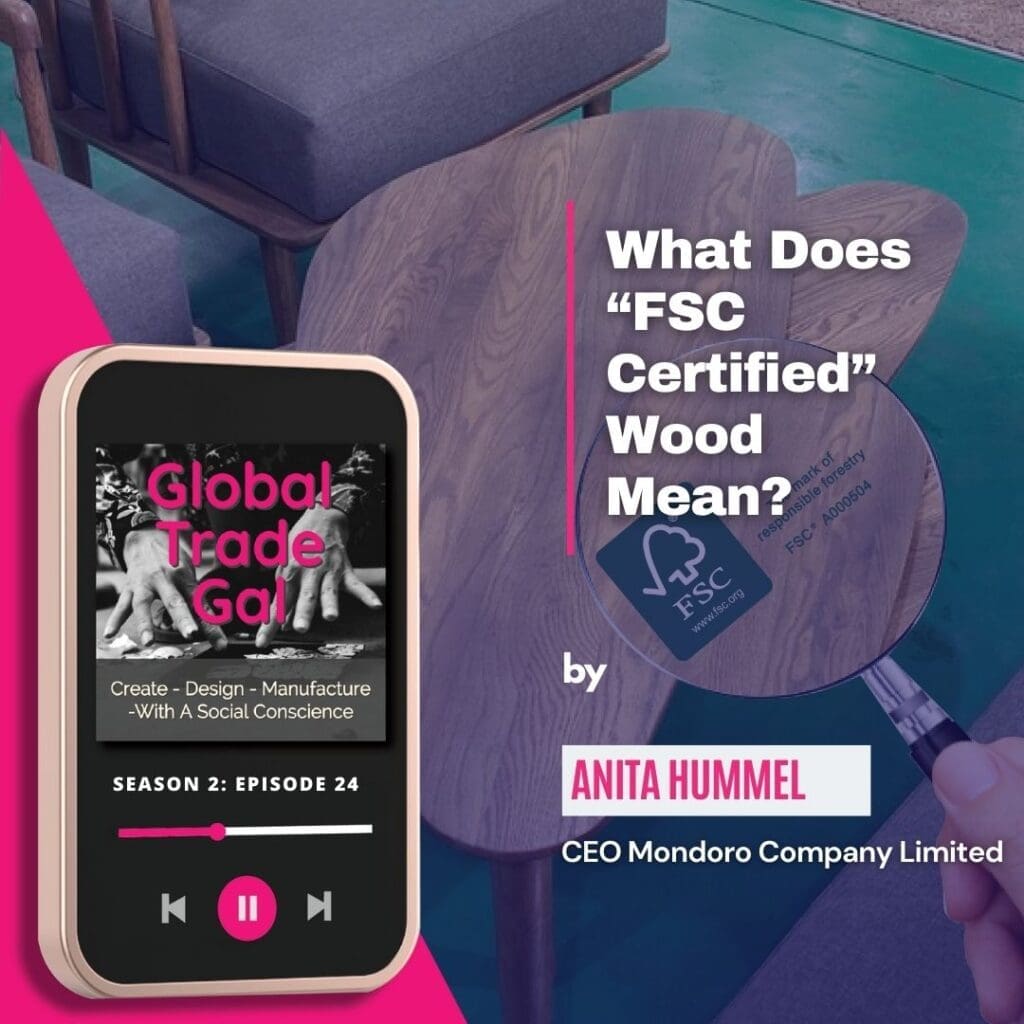Rosewood is one of the most sought-after woods in the world. But the wood is also becoming rare and precious.
There is a ban on the rosewood species of wood; rosewood has been placed on the endangered species list. Rosewood has suffered from overharvesting and illegal logging; species of genuine rosewood are now almost extinct. If you have a rosewood table and chairs, you can still use them in your home or residence.
Table of Contents
- What Is Rosewood, And Why Is There A Ban?
- CITES And The Rosewood Ban
- APHIS (USDA) And Rosewood
- The Ban On Rosewood Furniture
- Related Content
What Is Rosewood, And Why Is There A Ban?

There are many types of rosewood, but genuine rosewood is on the brink of extinction globally. It is almost extinct due to overharvesting and illegal logging of rosewood.
Because the illegal logging and also the way it has been overharvested has led to the genuine rosewood wood species entering the endangered list of woods, this now puts the rosewood on a list together with other items such as elephant ivory tusks.
Many people blame the Chinese market and their demand for rosewood furniture and other rosewood items. The middle class in China wants to own rosewood furniture, which has, in turn, caused the consumption of rosewood to rise by at least 40%.
I have seen in places like Hong Kong and China where almost all fine dining sets were made of rosewood. Almost every ex-pat wanted to go home with a rosewood dining set or other furniture.
There continues to be a shortage of rosewood worldwide. Africa is the largest supplier of rosewood to China, with over 95% of all exported rosewood from Africa going to the Chinese market.
Rosewood is now a globally protected species with both international and state protection for the wood; the global and U.S. national organizations are working to preserve the wood species of rosewood.
Rosewood is banned and protected because the wood has become an endangered wood species.
CITES And The Rosewood Ban
CITES stands for Convention On International Trade In Endangered Species of Wild Fauna and Flora or CITES. CITES is an international agreement between governments to help protect endangered plants and animals. The main goal of CITES is to ensure the survival of endangered plants and animals.
To help save all the 300 remaining species of rosewood, CITES has moved to protect the plant genius of rosewood and place all the species under their protection. CITIES continue to protect the rosewood as more rosewood variants are seen as endangered.
Each country also has a different government agency that works with CITES; if you want to know about a specific country and its CITES agreement, you can check the CITES Permit System by clicking here.

Listen To Our Podcast, What Does “FSC Certified” Wood Mean? Below or by clicking here.
Implication Of CITES Appendixes
CITES has broken down the rosewood species into three significant appendixes. Each different appendix and category gives you additional rights when it comes to the use and protection of rosewood.
Here is each appendix and what it now covers:
- CITES Appendix I – CITES Appendix I covers rosewood threatened with extinction. These would be the highest-risk types of rosewood that require complete protection.
- CITES Appendix II – CITES Appendix II covered rosewood, which was deemed a risk of extinction. As these rosewood species are considered a risk, they also require protection.
The CITES regulations can be very complicated, so if you have questions about your rosewood product or wood, you should talk to someone who is an expert. You can also find out more about the CITES Appendix by clicking here.
APHIS (USDA) And Rosewood
Besides CITES, an organization in the United States now controls the importation of wood into the United States; this agency is known as APHIS, or Animal and Plant Health Inspection Service for the United States Department of Agriculture (USDA).
APHIS now requires a permit to import all plants and plant products into the United States. APHIS will determine what wood products can or can not enter the United States and what permit is required for each type of product or lumber.
APHIS has several means that they will use to determine and protect the rosewood species, which include:
- The Lacey Act – All wood imports into the United States must fill out the Lacey Act. The Lacey Act makes it illegal to import or trade any species or rosewood species or genus that the law does not allow.
- Plant Protection Act – The Plant Protection Act consolidated all USDA laws into a single law; this gave the USDA the power to regulate, restrict, and prohibit the importation of all kinds of wood species, including rosewood.
The Ban On Rosewood Furniture
The good news is if you own a rosewood dining table, you can move it internationally and should be able to move or even sell it through a private sale in the United States. The bad news is that if you want to sell your rosewood products and ship them internationally, it is now tough to do that legally.
Many countries, especially the United States, now make it very hard to import any genuine rosewood furniture or other products because genuine rosewood has been placed on the endangered species list.
But if you own a rosewood dining table or another piece of furniture, there is no ban on you continuing to use and enjoy it in your own home or even selling it in a private sale to someone else. You cannot export the furniture or legally import rosewood products to sell retail.
If you are interested in seeing how Mondoro can be a valuable partner for you for wood furniture products – we would love to talk to you to see how we can help you.
Find out more about how Mondoro can help you create, develop, and manufacture excellent home decor and furniture products – don’t hesitate to contact me, Anita. Check out my email by clicking here or become a part of our community and join our newsletter by clicking here.
Mondoro gives out a FREE Lookbook to anyone interested. You can receive a copy of our latest Lookbook by clicking here.
Listen to our Podcast called Global Trade Gal. You can find it on all major podcast platforms. Try out to listen to one of our podcasts by clicking here.
Subscribe to our Mondoro Company Limited YouTube Channel filled with great videos and information by clicking here.
Related Content
What Is Algum Wood? And Other Biblical Facts
Algum wood is a wood that was referred to in the Bible that King Solomon used to build his temple. We know that King Solomon would have used the finest materials to build this temple, so Algum wood was likely a very special and expensive wood.
You can discover more by reading What Is Algum Wood? And Other Biblical Facts by clicking here.
Difference Between Solid Sheesham Wood And Teak Wood
Solid Sheesham Wood and Teak Wood are both very different kinds of woods. Even though they are both considered hardwoods, Sheesham wood is a softer wood than teak. Sheesham wood is also considered less durable than teak wood. Many premier manufacturers consider teak wood the ”king of woods.”
You can discover more by reading our blog Difference Between Solid Sheesham Wood, And Teak Wood by clicking here.
What Does “FSC Certified” Wood Mean?
FSC means the Forrest Stewardship Council, a nonprofit certification process set up to ensure that wood used for products is from a managed forest. The goal of the FSC is to stop illegal logging activities and certify that wood used for a product has reached the standard to be called FSC-certified wood.
You can discover more by reading our blog What Does “FSC Certified” Wood Mean? by clicking here.

